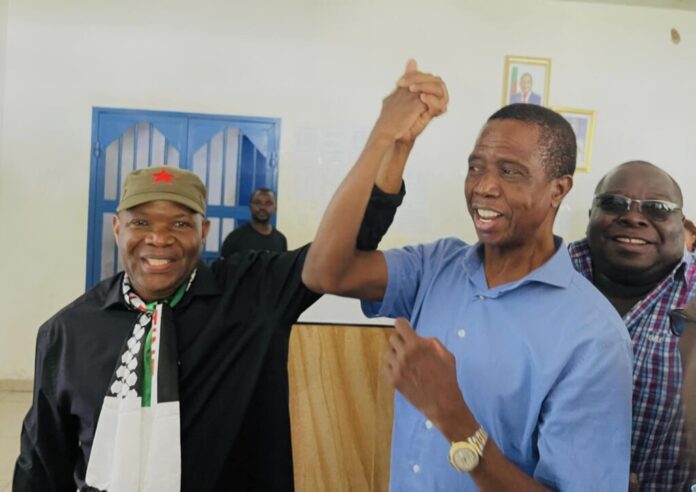Navigating the Chessboard of Zambian Politics: A Reflection on the Evolving Landscape
In the intricate game of politics, strategies akin to those employed in chess or soccer often dictate the course of events. Watching opponents’ movements, monitoring trends, and adapting tactics accordingly are essential for success. As Zambia undergoes a significant rearrangement of its political landscape, it becomes evident that these mind games are in full swing.
The once formidable popularity of the UPND has dissipated at an alarming rate, marking a decline unseen since the country’s independence in 1964. Economic hardships, the pervasive influence of social media, and internal party flaws, including a lack of meritocracy, tribalism and a culture of retribution, have alienated many of its erstwhile supporters. It’s evident that UPND’s appeal is waning, particularly among communities beyond its Tonga stronghold.
Conversely, the anticipated downfall of the PF, mirroring the trajectories of former ruling parties like UNIP and MMD, has not materialized as swiftly. Founded by Michael Sata with a close-knit group comprising relatives, friends, fellow Catholics and comrades from the reincarnated UNIP youth league in shanties, PF has retained a steadfast support base. Many within its ranks find it challenging to sever ties with the party, even as internal fissures deepen and external pressures mount. Meanwhile, UPND’s approach, rooted in exclusionary politics and ethnic undertones, fails to resonate with these demographics.
Recognizing the potential resurgence of PF, the ruling party has resorted to unorthodox tactics, leveraging judicial maneuvers and destabilization strategies through proxies like Miles Sampa. In politics, where vacuums are swiftly filled, the absence of strong leadership from both UPND and PF has created an opening for alternative voices, notably Fred M’membe and the Socialist Party (SP). SP’s burgeoning popularity, particularly in the Copperbelt region, underscores the growing disillusionment with UPND’s governance shortcomings and PF’s internal strife, exacerbated by opposition incitement.
The emergence of the UKA further complicates the equation, sowing confusion amidst an already tumultuous landscape. Positioned as a bastion of unified opposition politics, UKA poses a formidable challenge to both UPND and SP. As attacks intensify from entrenched rivals, it becomes evident that the balance of power is shifting. UPND can ignore UKA at own peril. The history of Zambian politics is full of empirical evidence to the effect that voters don’t vote for an opposition party, they just vote against a bad ruling party. Unless the economy can improve and the divisive politics can stop, UPND risks being voted out of office very soon.
While UPND remains the frontrunner for the 2026 elections, securing victory hinges on dispelling perceptions of economic ineptitude, ethnic favoritism, and divisive politics. President HH must pivot towards a platform that champions meritocracy and national unity, transcending the divisive tactics that have characterized the last three years. In politics, unity and inclusivity are paramount; success lies not in exclusion but in fostering a sense of collective purpose and shared destiny.
As Zambia navigates the complexities of its political landscape, the players must heed the timeless wisdom of the game: adapt, strategize, and unite, for the stakes are higher than ever before.

In the absence of any clear ideological policies that political parties adhere to, Zambian politicians merely follow their stomachs. The differences in policy or ideology between Zambian political parties in a very grey area. The national treasury has become an item to steal, a door to personal enrichment, not an instrument with which one can better the lives of Zambians. Because of the wealth he has accumulated before office, the only departure, the only exception to this rule is one Hakainde Hichilema, musankwa wa ku Bweengwa. The rest are just shameless thieves. His leadership is based on service to his fellow man without a hidden agenda of stealing. Zambians should guard this calibre of leadership with jealousy.
The author of the article has not identified himself/herself, a clear indication that what he/she has penned is a lot of nonsense.